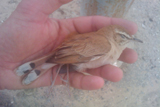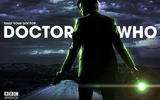Think it over
In the shadows of death
Abstract
Below are excerpts from a talk given to dental students by Dr. Richard Teo, a 40-year-old millionaire and cosmetic surgeon with stage-4 lung cancer. Throughout life, he had been consumed by a passion for money and success. Now his body was being eaten by cancer. He had selflessly come to share his life-experience at 10 th January 2012. He passed away at 18th October 2012.
Hi, good morning to all of you. My name is Richard, I’m a medical doctor. I’d like to just share some thoughts on my life. Embarking on your training to become dental surgeons, hopefully, it might get you to think about other things as well.
I come from a below-average family. I was told by the media and people around me that happiness was about success. And that success was about being wealthy. With this mindset, I’ve always been extremely competitive, ever since I was young.
Not only did I need to go to a top school, I needed to have success in all fields. I needed to get trophies, I needed to have colours awards, national colours awards, everything. I went on to medical school and graduated as a doctor. Some of you may know that within the medical fraternity, ophthalmology is one of the most highly sought-after specialities. So I went after that as well. I was given a traineeship in ophthalmology, I was also given a research scholarship by NUS to develop lasers to treat the eye.
So in the process, I was given two patents, one for the medical devices and another for the lasers. But you know what, all these academic achievements did not bring me any wealth. So once I completed my bond with MOH, I decided that training in eye surgery was just taking too long. And there was lots of money to be made in the private sector. If you’re aware, in the last few years, there has been this rise in aesthetic medicine. Tons of money to be made there! So I decided, well, enough of staying in the institution, it’s time to leave. So I quit my training halfway and I went on to set up my aesthetic clinic... in town, together with a day surgery centre.
You know the irony is that people do not make heroes out of the average GPs (general practitioners) and family physicians. They don’t. They make heroes out of people who are rich and famous. People are not happy to pay $20 to see a GP, but the same ones have no qualms paying $10,000 for a liposuction, $15,000 for a breast augmentation and so on and so forth. Why do you want to be a GP? Become an aesthetic physician! So instead of healing the sick and ill, I decided that I would become a glorified beautician. So, business was good, very good. People started off by waiting for one week, then it became 3 weeks, then one month, then two months, then three months. I was overwhelmed; there were just too many patients. Vanities are fantastic business. I employed one doctor, a second doctor, a third doctor, a fourth doctor. And within the first year, we were already raking in millions. Just in the first year. But it was never enough because I was so obsessed with it. I started to expand into Indonesia to get all the rich Indonesian tai-tais who wouldn’t blink an eye to have a procedure done. So life was really good.
So how did I spend my weekends? Typically, I’d go to car club gatherings. We would go up to Sepang in Malaysia for car racing. With the spare cash, what did I do? I got myself a Ferrari.
So what did I do after getting the car? It was time to buy a house, to build our own bungalows. So we’d go around looking for land to build our own bungalows and we went around hunting. So how did I live my life? Well, we all thought we had to mix with the beautiful, rich and famous….
So I’d reached a point in life where I thought I’d got everything in my life. I was at the pinnacle of my career. That’s me one year ago in the gym and I thought I was like, having everything under control and reaching the pinnacle.
Well, I was wrong. I didn’t have everything under control. About March last year, I started to develop backache in the middle of nowhere. I thought maybe it was all the heavy squats I was doing. So I went to SGH, saw my classmate to do an MRI, to make sure it’s not a slipped disc or anything. And that evening, he called me up and said that, “We’ve found a bone marrow replacement in your spine.” I said, “Sorry what does that mean?” I knew what it meant, but I couldn’t accept it. I was like “Are you serious?” I was still running around going to the gym, you know. But we had more scans the next day, PET scans — positrons emission scans, they found that actually I had stage 4 terminal lung cancer. It had already spread to the brain, the spine, the liver and the adrenals. And you know, one moment I was there, totally thinking that I had everything under control, thinking that I’d reached the pinnacle of my life. But the next moment, I had just lost it.
So, I was told that even with chemotherapy, I’d have about 3-4 months at the most. Did my life come crashing down? Of course it did, whose wouldn’t? I went into depression, of course, severe depression.
See, the irony is that all these things that I had, the success, the trophies, my cars, my house and all, I thought that had brought me happiness. But I was feeling really down, having severe depression. Having all these thoughts of my possessions, they brought me no joy. The thought of... you know, can I hug my Ferrari to sleep, no... No, it is not going to happen. And I had thought they were real, but they were giving not true happiness. What has really brought me joy in the last ten months is interaction with people, my loved ones, friends, people who genuinely care about me, they laugh and cry with me, and they are able to identify with the pain and suffering that I am going through.
You know the classical Chinese New Year that is coming up. In the past, what would I do? Well, I would usually drive my flashy car to do my rounds, visit my relatives and show it off to my friends. And I thought that was joy, you know. I thought that was really joy. But do you really think that my relatives and friends, some of whom had difficulty trying to make ends meet, would truly share that joy with me? Seeing me driving my flashy car and showing off to them? No, no way. They were having problems trying to make ends meet, taking public transport. In fact I think, what I had done was more like you know, making them envious, jealous of all I had. In fact, sometimes there was even hatred.
Well, let me just share another story with you. You know, when I was about your age, I stayed at the King Edward VII Hall. I had this friend who I thought was strange. Her name was Jennifer, we’re still good friends. And as we walked along the path, she would, if she saw a snail, actually picks up the snail and put it along the grass patch. I was like, “Why do you need to do that? Why dirty your hands? It’s just a snail.” The truth was, she could feel for the snail. The thought of being crushed to death was real to her, but to me it was just a snail. I thought, “If you can’t get out of the human pathway you deserve to be crushed, it’s part of evolution isn’t it?”
There I was, being trained as a doctor, to be compassionate, to be able to empathise; but I couldn’t. As a house officer, I graduated from medical school and got posted to the oncology department at NUH. And, every day I witnessed death in the cancer department. I saw how they suffered, I saw all the pain they went through. I saw all the morphine they had to press every few minutes just to relieve their pain. I saw them struggling with their oxygen, breathing their last breath and all. But it was just a job. When I went to the clinic every day, to the wards every day, took blood, gave the medication, was the patient real to me? They weren’t real to me. It was just a job.
No. Of course, I knew all the medical terms to describe how they felt, all the suffering they were going through. But in truth, I did not know how they felt, not until I became a patient. It is only now I truly understand how they felt. And, if you ask me, would I have been a very different doctor if I were to re-live my life now? I can tell you, yes, I would. Because I now truly understand how those patients felt. Sometimes, you have to learn this kind of lesson the hard way.
As you start just your first year and embark on this journey to become dental surgeons, let me just challenge you on two fronts.
Inevitably, all of you will start to go into private practice. You will begin to accumulate wealth. I can guarantee it. Just doing an implant can bring you thousands of dollars. It’s fantastic money. And actually, there is nothing wrong with being successful, nothing g wrong with being rich or wealthy. The only trouble is that a lot of us, me included, can’t handle it.
Why do I say that? Because as soon as I started to accumulate, the more I had, the more I wanted. The more I wanted, the more obsessed I became. Like what I said to you earlier on, all I wanted was basically to get more possessions, to reach where society wanted us to be. I had become so obsessed that nothing else really mattered to me. Patients were just a source of income, and I tried to squeeze every single cent out of these patients.
A lot of times, we forget whom we’re supposed to be serving. We become so lost that we serve nobody else but ourselves. That’s what happened to me. Whether it’s in the medical or dental fraternity, I can tell you, right now, in private practice, sometimes we just advise patients on treatment that is not to be recommended. Grey areas. And even though it’s not necessary, we kind of advocate it. Even at this point, I know those who genuinely care for me and those who just try to make money out of me by selling me ‘hope’. We kind of lose our moral compass along the way. Because we just want to make money.
Worse, I can tell you, over the last few years, we bad-mouth our fellow colleagues, our fellow competitors in the industry. We have no qualms about it. We put them down to give ourselves an advantage, we do that. And that’s what’s happening right now, medical, dental, everywhere. My challenge to you is not to lose that moral compass. I learnt this lesson the hard way, I hope you don’t ever have to do it.
Secondly, a lot of us will start to get numb to our patients as we start to practise. Whether it is government hospitals, private practice, I can tell you, when I was in the hospital, with stacks of patient folders, I wanted to get rid of those folders as soon as possible. I wanted to get patients out of my consultation room as soon as possible because there were just so many of them and that’s a reality. Did I truly know how those patients felt back then? No, I didn’t. The fear, anxiety and all, did I truly understand what they were going through? I didn’t, not until this happened to me. I think that is one of the biggest flaws in our system.
We’re being trained to be healthcare providers, professional and all, and yet we don’t know how exactly they feel. I’m not asking you to get involved emotionally, I don’t think that is professional, but do we actually make a real effort to understand their pain at all? Most of us won’t, alright, I can assure you. So don’t lose it, my challenge to you is to always be able to put yourself in your patient’s shoes.
Because the pain, the anxiety, the fear are very real even though it’s not real to you, it’s real to them. So don’t lose it and you know, right now I’m in the midst of my fifth cycle of chemotherapy. I can tell you it’s a terrible feeling. Chemotherapy is one of those things that you don’t wish even on your enemies because it’s just suffering, a lousy feeling, throwing up, you don’t even know if you can retain your meals or not. A terrible feeling! And even with whatever little energy I now have, I still try to reach out to other cancer patients because I truly understand what their pain and suffering is like. But it’s kind of too little too late.
You guys have a bright future ahead of you, with all the resources and energy. So I’m going to challenge you to go beyond your immediate reaction to patients. To understand that there are people out there who are truly in pain, truly in hardship. Don’t get the idea that it is only poor people who suffer. It is not true. A lot of these poor people did not have much in the first place and hey are easily contented. For all you know, they are happier than you and me, but out there are people who are suffering mentally, physically, emotionally, financially and so on and so forth, and they are real. We choose to ignore them or we just don’t want to know that they exist.
So think about it, as you go on to become professionals and dental surgeons and all. That you can reach out to these people who are in need. Whatever you do can make a large difference to them. I’m now at the receiving end so I know how it feels. Someone who genuinely cares and encourages you makes a lot of difference to me.
Everyone knows that they are going to die; every one of us knows that. The truth is, none of us believes it because if we did, we would do things differently. When I faced death, when I had to, I stripped myself of all that stuff totally and I focused only on what was essential. The irony is, a lot of the time, it is only when we learn how to die that we learn how to live. I know it sounds very morbid for this morning but it’s the truth, this is what I’m going through.
Don’t let society tell you how to live. Don’t allow the media to tell you what you’re supposed to do. Those things used to be real for me. I led this life thinking that these things are going to bring me happiness. I hope that you will think about it and decide for yourselves how you want to live your own life. Not according to what other people tell you to do. You have to decide whether you want to serve yourself, whether you’re going to make a difference in anybody else’s life. Because true happiness doesn’t come from serving yourself. I thought it did but it hasn’t turned out that way.
Also, most importantly, I think true joy comes from knowing God. Not knowing about God — I mean, you can read the Bible and know about God — but knowing God personally: getting a relationship with God. I think that’s most important. That’s what I’ve learnt.
So if I was to sum it up, I’d say that the earlier we sort out our priorities in life, the better life will be. Don’t be like me — I had no other way. I had to learn it the hard way. I had to go back to God and thank Him for this opportunity because I’ve had three major accidents in my past — car accidents. I was always speeding but somehow I’d always come out alive. Even though I was baptised it was just a show, but the fact that this has happened, has given me a chance to come back to God.
There are a few things I’ve learnt through all this:
1. Trust in the Lord God with all my heart — this is so important.
2. Love and serve others, not just myself.
There is nothing wrong with being rich. I think it’s absolutely alright, because God has blessed us in different ways. Many people are blessed with wealth, but the trouble is I think a lot of us can’t handle it. The more we have, the more we want. I’ve gone through this: the deeper the hole I dug, the more I got sucked into it, so much so that I worshipped wealth and lost my focus. Instead of worshipping God, we worship wealth. It’s just a human instinct. It’s just so difficult to get out of it.
You are all professionals and when you go into private practice, you will start to build up wealth — inevitably. So my thoughts are, when you start to build up wealth and when the opportunity comes, just remember that all these things don’t belong to you. You don’t really own them nor have rights to this wealth. It’s actually God’s gift to you. Remember that it’s more important to further His Kingdom rather than to further ourselves. I know that wealth without God is empty. It is more important that you fill up with true wealth. As you build up, as professionals, you need to fill it up with the wealth of God.
To view the video of this talk:
www.youtube.com/watch?v=8pbelDGpWvs
Dr. Richard Teo was a doctor who finally discovered his own true way of success
Share with us (Comments, contributions, opinions)
When reproducing this feature, please credit NAMAH, and give the byline. Please send us cuttings.



 Crashing down
Crashing down
 Caring
Caring
 Desolation
Desolation
 With stacks of Patient folders
With stacks of Patient folders
 Caring
Caring
 Evolving doctor
Evolving doctor